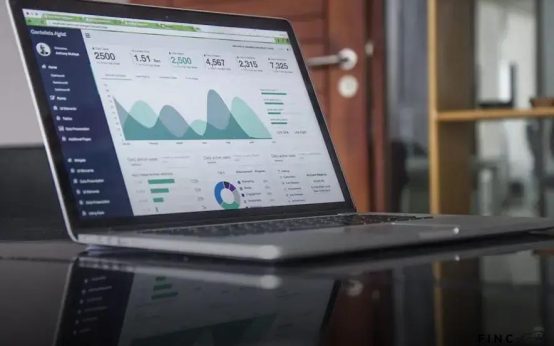Should you pay off your mortgage early? It’s a question many homeowners ponder as they assess their financial goals. With rising property values and fluctuating interest rates, understanding the pros and cons of this decision is crucial. Delve into the financial considerations and explore whether alternative investment opportunities could offer a better return. We’ll help guide you through these important decisions, ensuring you make the best choice for your financial future.
Pros of Paying Off Your Mortgage Early
Paying off your mortgage early can offer a range of benefits. One of the main advantages is the reduction in interest payments over the life of the loan. This can save a substantial amount of money, especially if your mortgage has a high interest rate. Additionally, paying off your mortgage early provides peace of mind and financial freedom, as you will own your home outright much sooner. This sense of stability can reduce stress and provide more opportunities to allocate your income towards other financial goals or lifestyle improvements.
Another benefit is the increase in home equity. By reducing your debt faster, you build equity more quickly, which can be beneficial if you decide to sell your home or use it as collateral for loans. Moreover, having no mortgage payment can significantly lower your monthly expenses, allowing more flexibility in budgeting and spending.
Security is another pro to consider. Without a large monthly mortgage obligation, you may feel more secure in the event of financial setbacks, such as job loss or other unexpected expenses. This early payoff can act as a cushion during challenging times.
Despite these advantages, always weigh them against potential downsides before making a decision. Consider opportunity costs and consult with a financial advisor to ensure this step aligns with your long-term financial plans.
Cons of Paying Off Your Mortgage Early

- Loss of Tax Benefits: Paying off your mortgage early may result in the loss of valuable tax deductions. Mortgage interest is often tax-deductible, which can help in reducing your taxable income. By eliminating this, homeowners may face higher tax obligations.
- Reduction in Liquidity: Tying up a significant portion of your funds in paying off a mortgage can decrease your liquidity. Emergencies or unexpected expenses might require ready cash, and having most of your money invested in your home limits your financial flexibility.
- Opportunity Cost: Using funds to pay off a low-interest mortgage could mean missing out on potentially higher returns from other investments. Stocks, bonds, or retirement accounts may provide better opportunities for growth compared to the interest saved from an early mortgage payoff.
- Impact on Savings: Diverting extra resources to pay off your mortgage early might hinder your ability to save for other critical financial goals, like retirement or education expenses, which could lead to insufficient savings in the long term.
- Prepayment Penalties: Some mortgage contracts include prepayment penalties, which can make paying off your mortgage early more expensive than anticipated. This could offset any interest savings, making it crucial to review your loan terms before deciding.
Financial Considerations Before Deciding
When contemplating paying off your mortgage early, it’s crucial to examine several financial aspects. First, assess the current interest rates. If your mortgage has a low-interest rate, it might be more beneficial to allocate extra funds towards other investments.
Emergency Funds: Before channeling extra money toward your mortgage, ensure you have a robust emergency fund. Financial advisors commonly recommend an emergency savings account that can cover three to six months of living expenses.
Another consideration is the potential tax implications. Mortgages often come with tax deductions; paying off your mortgage might alter your tax situation. Examine how this could affect your annual taxes before making any decisions.
If you participate in an employer-sponsored retirement plan, it may be advantageous to increase contributions to your 401(k) or IRA, especially if your employer matches. Comparing the potential returns on these investments versus mortgage payments can provide a clearer financial picture.
Moreover, evaluate your overall debt situation. If you have higher interest debt elsewhere, it may be more strategically sound to focus payments on those loans first. Consider consulting a financial advisor to help balance your mortgage strategy with your broader financial goals.
Alternative Investment Opportunities

Exploring alternative investment opportunities is essential when considering whether to pay off your mortgage early. By not allocating extra funds solely to your mortgage, you can diversify your investment portfolio, which may lead to significant financial gains.
Investing in the stock market is a popular option. With the potential for higher returns, allocating funds here could yield more benefits compared to the interest saved from an early mortgage payoff. However, stock investments come with their own risks, so it’s vital to assess your risk tolerance.
Real Estate Investments
Utilizing funds for purchasing rental properties can be another profitable avenue. Real estate can offer consistent income and potential tax benefits, adding a stable asset to your portfolio. This option may require more active involvement than stock market investments.
Bond Investments Investing in bonds is considered a safer alternative with predictable returns. Though the returns might not be as high as stocks, bonds provide a steady income stream, which might suit conservative investors looking for security.
Consider investing in retirement accounts like 401(k)s or IRAs. These allow for tax advantages and compounding interest, benefiting your long-term financial health. Matching contributions from employers in 401(k) plans can amplify your investment’s growth.
Additionally, putting money into an emergency fund ensures financial stability. Covering unexpected expenses is critical, offering peace of mind without relying on credit or loans.
By evaluating these alternative investments, you can make informed decisions about where to direct your money for potential financial growth beyond paying off your mortgage early.





